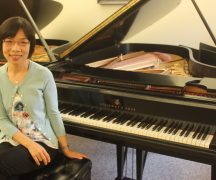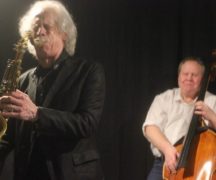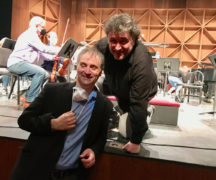By DAVID DUPONT
BG Independent News
In the Conrad Art Song Competition, there’s a singer, and a piano, and the magic that happens between them when they perform.
That’s what the judges were looking for, said BGSU Professor of Voice Christopher Scholl, who coordinates the event. “They’re judging them on the musical magic, the collaboration,” he said Saturday night before announcing the winners.
The competition was held Saturday with four duos in the undergraduate division and 11 in the graduate division. Semifinals for the graduate division were held earlier in the day with the finals at night. (The division is determined by the standing of the singer.)
Having a competition that judges not just the singer, but the duo as a unit, is rare, said Joe Dan Harper, a voice professor from SUNY Fredonia. “It’s a terrific idea,” he said.
“There has to be a certain level of technical skills on both sides, first of all just to be able to do it, but listening on a really high level and being able to respond with colors in that are in the moment.”
The collaboration between the singer and the pianist is what set apart the winning duos, he said.
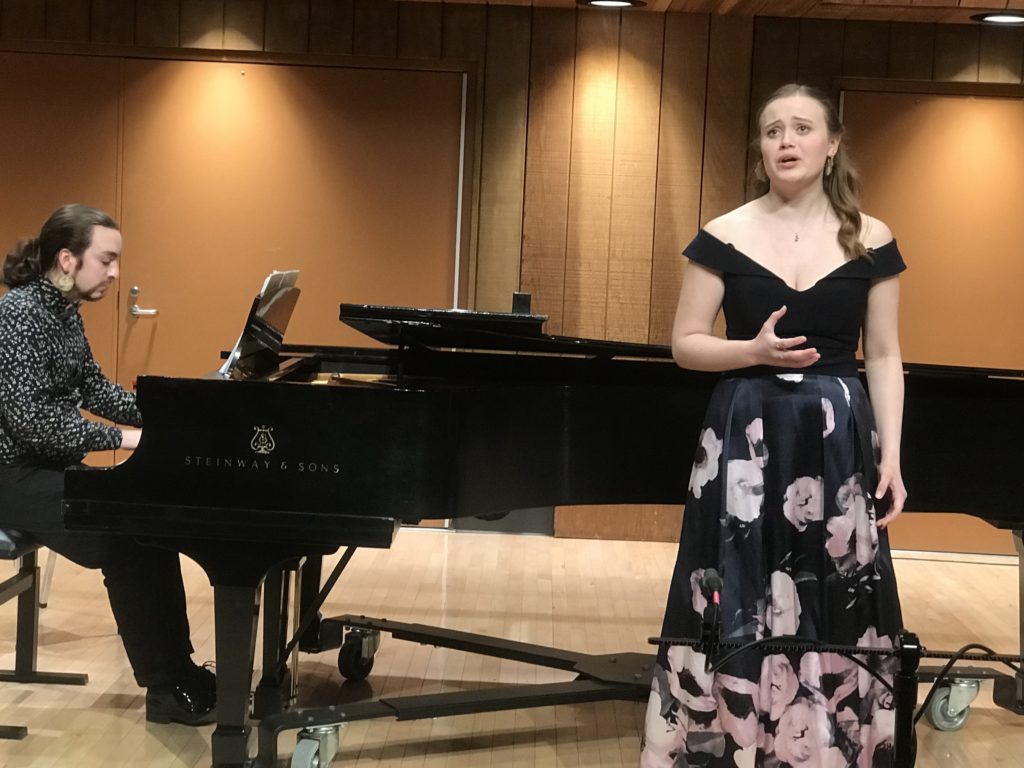
Taking home, the $1,500 cash first prizes, split equally between the musicians, were:
- Isabella Olzak, mezzo-soprano, and Abigail Petersen, piano, in the undergraduate division.
- Emma Clark, soprano, and Stephen Eckert, piano, in the graduate division.
Petersen, a sophomore in piano performance from Neenah, Wisconsin studying with Yevgeny Yontov, said she wants to make a career as a collaborative pianist. “This experience only solidifies that for me. I love the opportunity to work with other people, not just in a musical context but the personal encouragement and support I’ve been able to give to Bella and others in this context.”
“It’s a lot of trust,” Olzak, a first-year music education student, said of working with Petersen. “We have a really good bond. We got to the point where with that trust that she’s able to predict what my next move is going to be even if the song is different. She’s going to be right there to catch me wherever we’re at.”
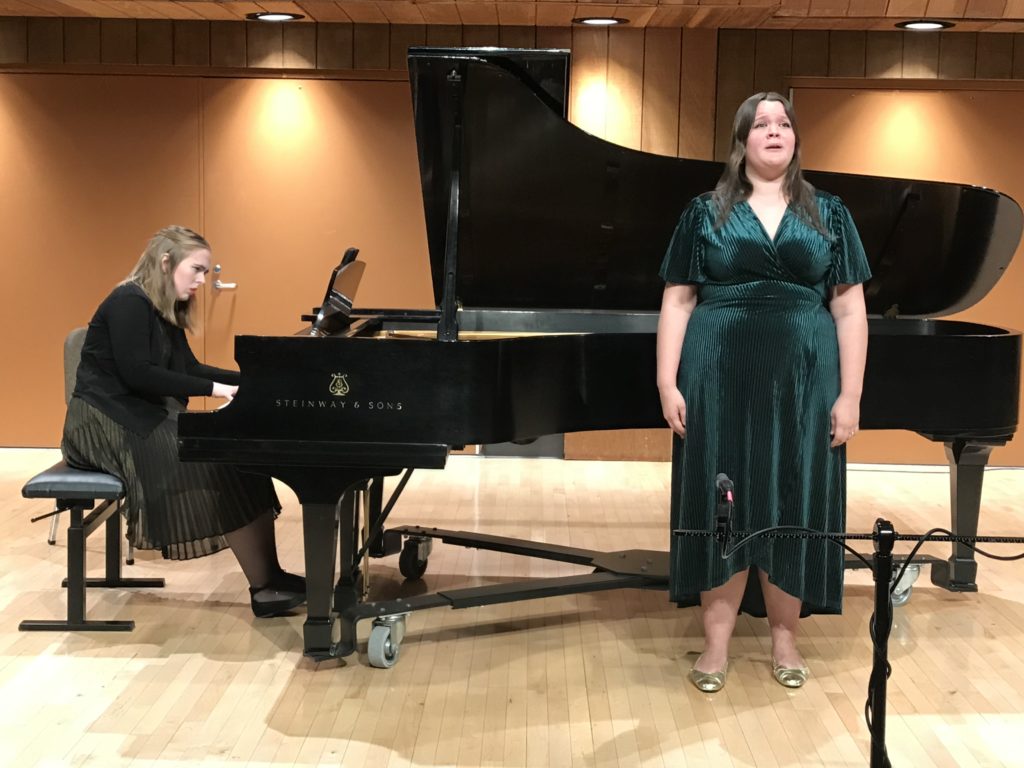
The duo opened its three-song competition set with “Als Luise die Briefe” by W.A. Mozart.
Olzak said she decided late in the process to enter the competition. She did so at the urging of her teacher Ellen Scholl. She showed up at for a lesson, and Scholl said she had a good idea for a Mozart song she could include in her Conrad repertoire – singers must perform at least one selection from the Classical Era as well as one each from the Romanic period, the 20th Century, and one by a living composer in their six song program.
Olzak told Scholl she didn’t really like Mozart.
Scholl said she had a song that would change her mind.
And it did.
Petersen said they spent a lot of time studying the text to see where it expressed passion, where it expressed sadness, as well the emotions underneath.
“What’s been really cool as we work together is that there’s a lot of collaborative feedback,” Clark said of her work with Eckert. “We do a lot of research and talk about what the songs mean and what we can throughout the songs to match our vibes.”
Though Eckert’s not a singer and Clark is not a pianist, they are still able to give each other feedback, the pianist said.
Eckert, a student of Solungga Liu, is in his first year in the university’s Doctor of Contemporary Music program.
For both Eckert and Petersen, this is a continuation of their winning ways. Both were winners in the college’s Competitions in Music Performance held in December. Both also plan to compete later this spring in the Wayland Chamber Music Competition.
Clark, who is in her first year as a graduate voice student in Myra Merritt’s studio, said this marks a return to serious study of voice.
She comes from a family of classical musicians, mostly singers. So, she has been singing her whole life. But she said, she fell out of love with it and studied English as an undergraduate.
She continued singing as a hobby, though, and continued to perform and compete. Clark said she was “doing all the same stuff without all the pressure.” She rediscovered her passion for singing and found “I enjoyed it and didn’t mind adding more pressure because I loved it so much.”
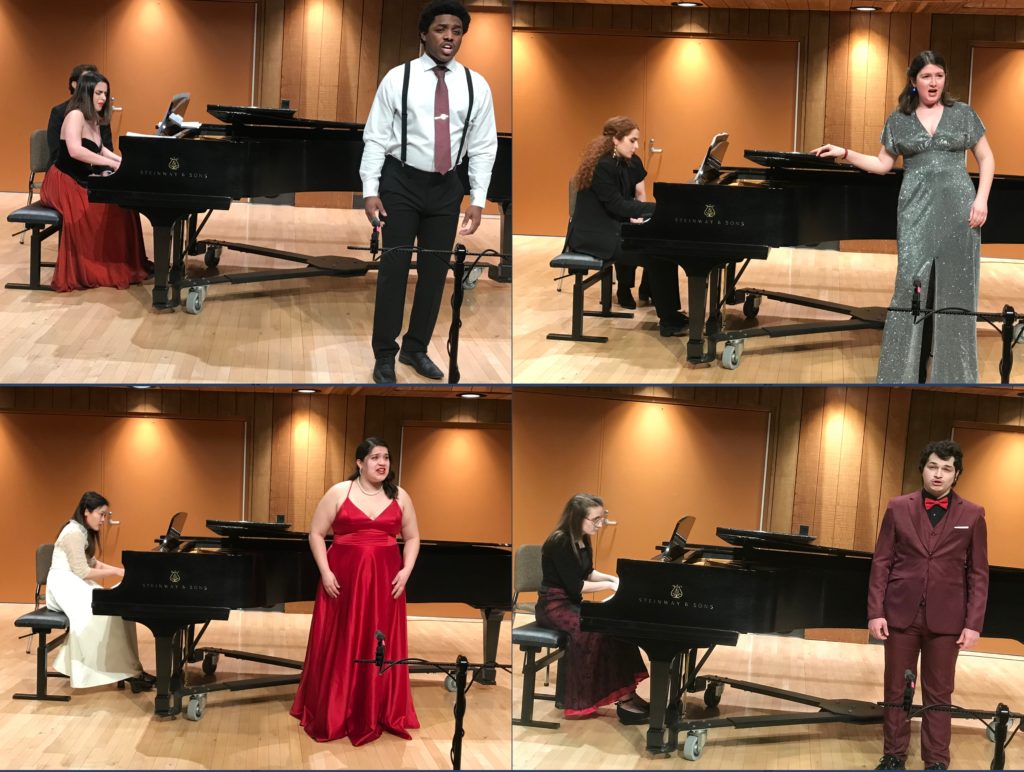
The other winners were:
- Tajj Crowder, baritone, and Nano Beraia, piano, second place undergraduate division.
- Kirsten Kidd, soprano, and Chirapa Wungkaom, piano, second place, graduate division
- Andrew Puschel, tenor, and Hannah Zaborski, piano, third place undergraduate division.
- Sofia Vasileiadou, soprano, and Eva Panagou, piano, third place graduate division.
The competition, Harper said, “teaches the students what they need to know which is how to work together.”
He added: “the way it is set up it forces the students to pick repertoire that’s really interesting and shows off both the singer and the pianist.”
Those requirements also encourage finding unusual songs. “There were five or six songs I’d not heard before,” he said.
“I thought it was terrific work overall. I loved every bit of it.”


